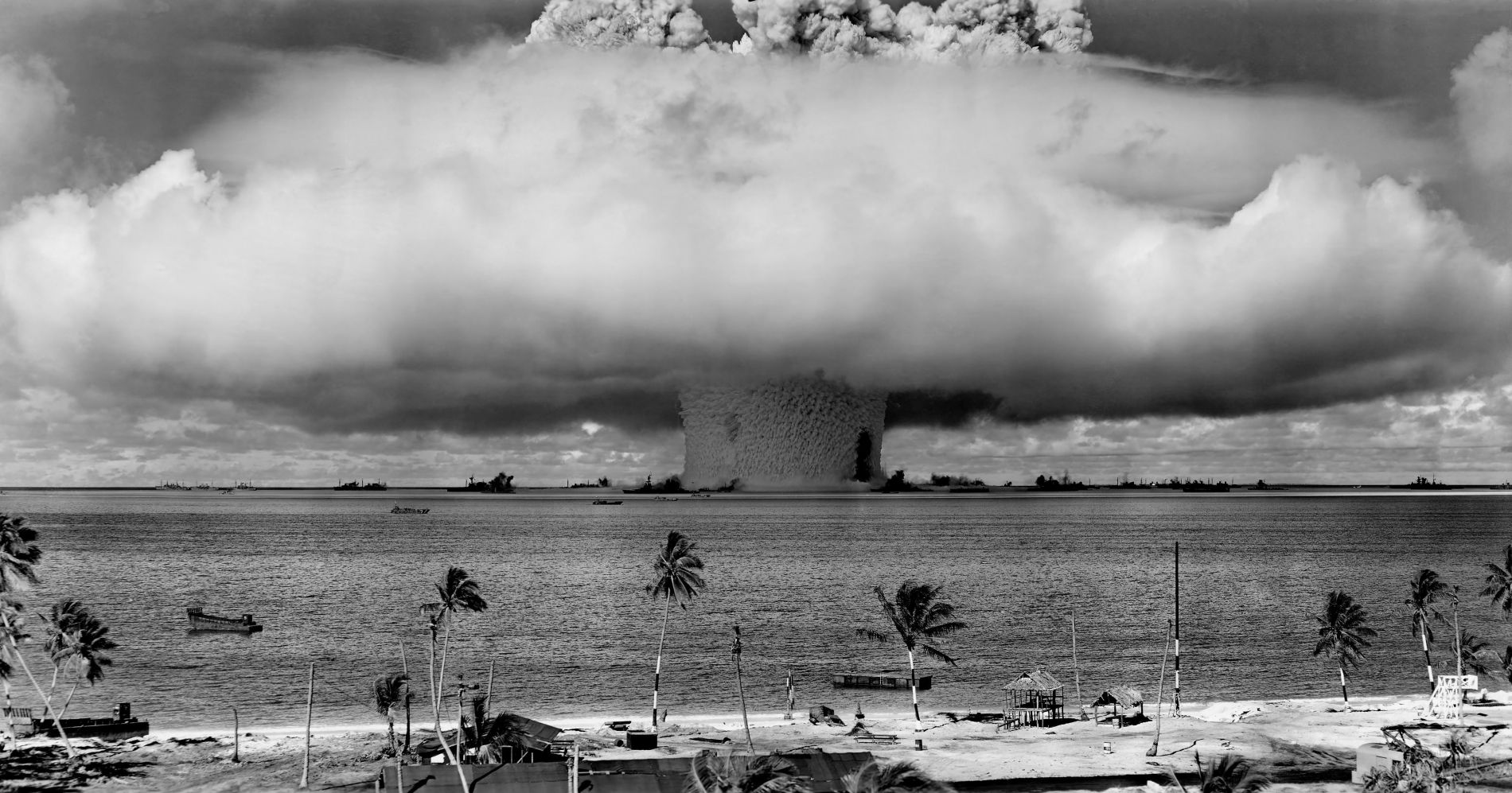Having just realised that it is exactly one month till the apparent end of the world, my only, yet subtly irrelevant concern about this matter, is how the human race will connect and repopulate in the situation that we have survivors.
Due to the infrastructure in which we live our lives, it is almost impossible to avoid the cold-calls asking me whether I would like double glazing, or even to reclaim my tens of thousands of pounds that I’ve spent on PPI insurance, considering I only limit myself to a £200 Capital One credit card. Regardless of these amazing offers, the reason why we struggle to disconnect ourselves is purely down to the wonders of the internet, and in times of crisis (extending to the likes of another planet bumping into ours, strangely enough) I am confident that it will be this same method of connection that will bring us together. And it’s ironic, those who disbelieved the internet could reach to such a scale as it is today and despise some of the abilities of it, it will be the very thing at that time that will become at its highest in demand but at its lowest of capability – but it won’t fully disappear.
However, it seems there are 4 main possible causes that will totally write-off the internet; each of which hardly seems as Hollywood as “Bumper-Car Planets” which is movie title I would love to go and see.
Space Weather
A threat living 92 million miles away, consisting of a ginormous ball of fire with a diameter of 864938 miles sounds like a worthy opponent to wiping out the internet. Solar flares from the sun have past affected the key source of communication across our globe, and are predicted to do so again in mid-2013. One afternoon in 1998, the Galaxy IV, a $250 million satellite floating 35,000 kilometers above the earth, suddenly spun out of control. The main suspect is a solar flare: and several other satellites (owned by Germany, Japan, NASA and Motorola) all failed at the same moment.
The results were immediate, as 80% of the worlds pagers were unresponsive to receiving messages. Mobiles and the internet today were not as sophisticated as they were 14 years ago, but 80% is a close call to a total wipeout of mobile communication. If we were to experience the same scale of solar flare disruption today, it would only cause a minor glitch in the stock market for a couple of hours.
Luckily if the world wasn’t to end neighbouring Christmas 2012, we have forecasted major geomagnetic storms in the summer of next year due to the peak time in the solar sunspot cycle. Happy new year…
Cyber Warfare
Unlike the brave and corporeal method of conflict between the worlds forces, we can expect our armies to be based in the loft, square-eyed and shouting down for their dinner to be had at their desk. As our dependence lies more and more heavily on the internet, so do our vulnerabilities.
Usual targets such as the military or large multinational corporations can expect to defend their assets and responsibilities with a more digital barricade opposed to a tangible one, since if their systems are taken down they become more bottom-bare than they would by a higher soldier death toll rate.
How is this done? Viruses. And every form they come in. Given the defences in place, are these parasites only a minor theoretical concern? No. Consider the Stuxnet worm that raised its head in 2010. This worm zigzagged its way into Iranian industrial systems, reprogrammed them, hid its tracks and wrecked the factory operations. Seemingly coming from nowhere, Stuxnet introduced itself as a destructive, unstoppable herald of what’s to come.
It will surprise no one that cyberwarfare of the future will involve targeting not only military and industrial targets but internet connectivity for the general population. If you want to take down your enemy, start by shredding his internet. This leads on to my next point…
Political Mandate
In the past two years, Iran and Egypt have both entirely turned off internet access to its private and government networks for a specified amount of time. Soon to follow, both the US and China are pending approval and access to the same facility of having an “Internet Killswitch” in the case of a cyber-attack.
Bruce Schneier – Computer Security Specialist says “The Internet is the most complex machine mankind has ever built and shutting down portions of it would have all sorts of unforeseen ancillary effects.” And he’s right. Inevitably, shutting down the internet will have its major consequences, and simply wont result in your laptop saying ‘Cannot find network‘. For this “Killswitch” to be flicked off, that countries’ economic and threat-level condition has to be at a “Don’t look back, it’s not pretty” state. Similarly, the dependence on this switch will hold the same value and sacrifice of that of a nuclear bomb – without the mushroom shaped explosion.
However, my argument against this “Killswitch” idea is; If it’s not broken, don’t fix it. By creating the opportunity of turning the internet off, what target do you now think cyber-attackers are going to go for?
Simply cutting the cable… easy!
Although satellites are used for some Internet traffic, more than 99% of global Web traffic is dependent on deep-sea networks of fiber-optic cables that blanket the ocean floor like a nervous system. These are a major physical target in wars, especially at special choke-points in the system. And this is not simply a theoretical prediction, the underwater battles are well underway.
As much as three-fourths of the international communications between the Middle East and Europe have been carried by two undersea cables: SeaMeWe-4 and FLAG Telecom’s FLAG Europe-Asia cable. On January 30, 2008, both of these cables were cut, severely disrupting Internet and telephone traffic from India to Egypt.
Those cables were only the beginning. A few days later, on February 1, 2008, an undersea FLAG Falcon cable in the Persian Gulf was cut 55 miles off the coast of Dubai. On February 3rd, a cable between the United Arab Emirates and Qatar was cut. On February 4th, the Khaleej Times reported that not only these cables, but also two more, a Persian Gulf cable near Iran, and a SeaMeWe4 cable off the coast of Malaysia.
These cuts led to widespread outages of the Internet, especially in Iran. Suspicions that this reflected underwater sabotage derived in no small part from the geographical pattern: almost all the cables were cut in Middle Eastern waters near Muslim nations. Who might have done it? No one knows. But it is known that the U.S. Navy has deployed undersea special operations for decades. In Operation Ivy Bells, for example, Navy divers appear to have swum from submarines to tap an undersea cable in the Kuril Islands.
Whatever the truth behind the incident, we see that if a government or organization wants badly enough to sabotage the telecommunications across a wide swath, it is possible. New deep-sea cables are urgently needed to protect the global economy because businesses worldwide are vulnerable to the targeting of “choke points” in underwater communications.
Whether by terrorists, governments or cyber-pirates, these weak points in the chain should be keeping us all up at night.
End of the World this Christmas? I think we have other worries…
Although there has been a scare that the world will end this December, neither do I see this as realistic or feasible. However, my research into this topic of the internet and our dependence is realistic, and all attempts to destroy or disrupt it seems to have (and as previously proved) accessible means to do so – and looks to have more frightening and last lasting consequences.
However, the internet has evolved but more importantly so has the human race and we can only look forward to progress a successful, protected yet secure partnership with one of the greatest inventions by mankind.
“Any intelligent fool can make things bigger, more complex, and more violent. It takes a touch of genius – and a lot of courage – to move in the opposite direction.” – Albert Einstein

